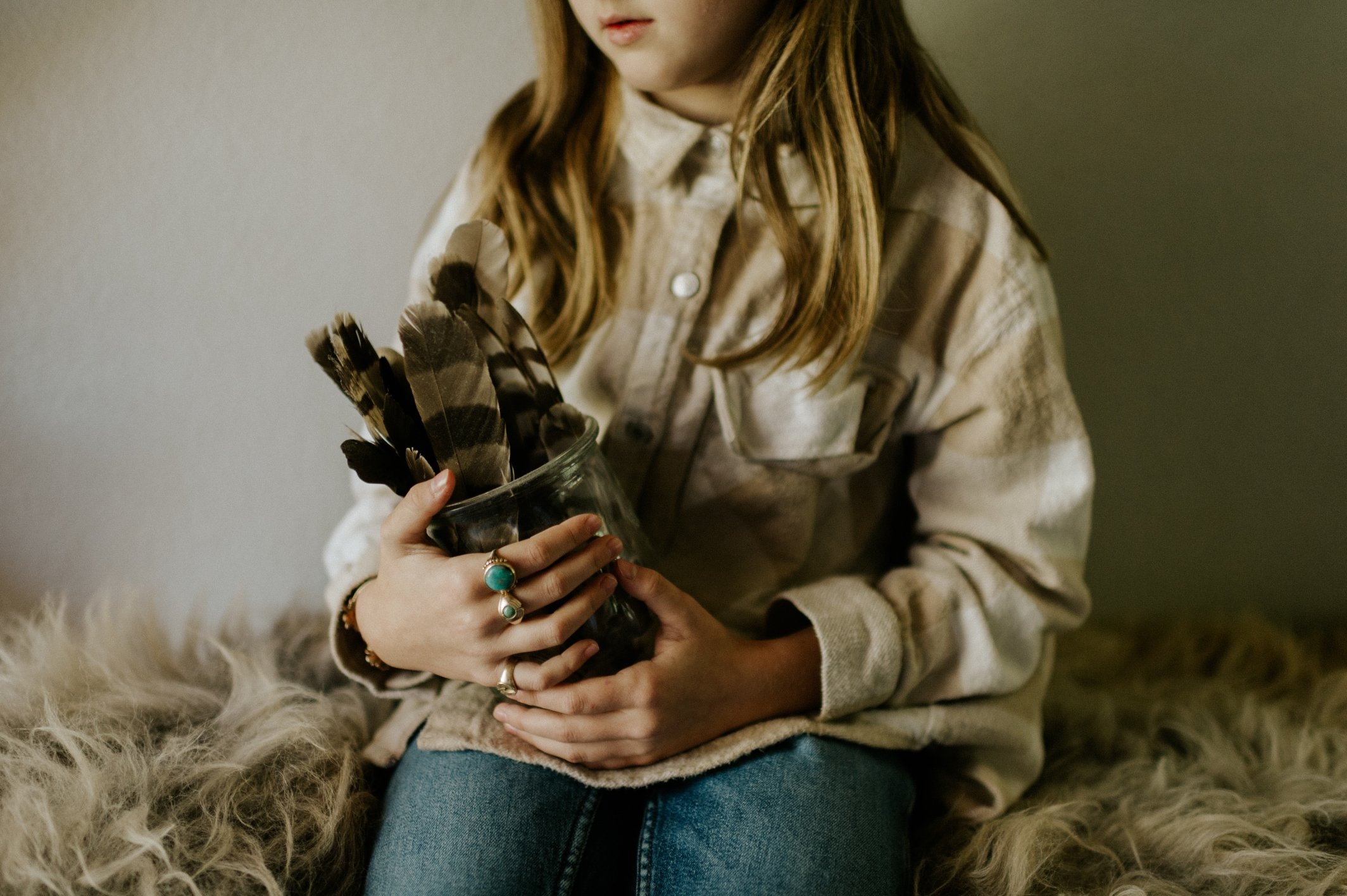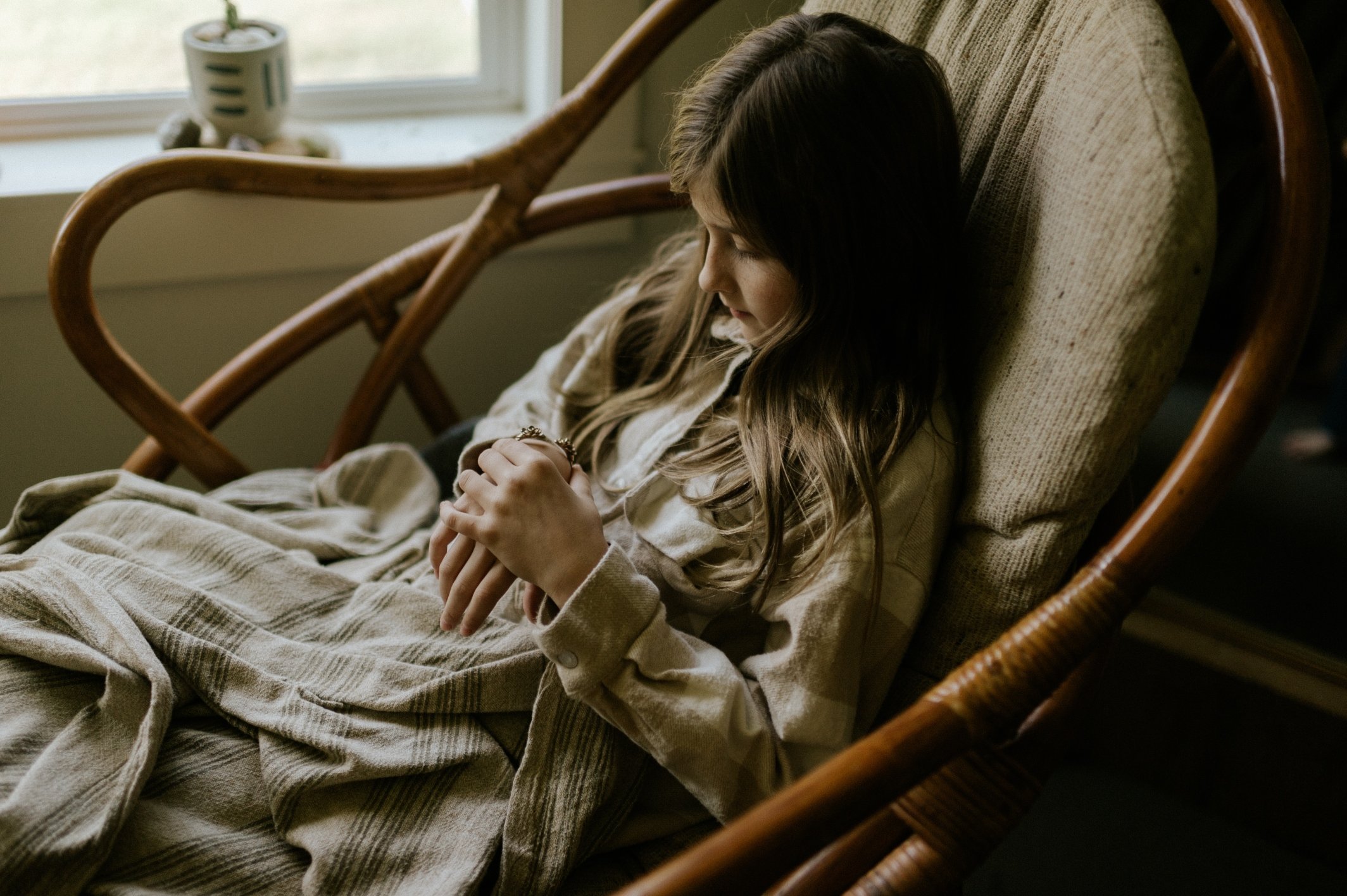It seems a lot of the country is sitting too close to the fire; their cheeks flushed rosy from unusually hot temperatures and even hotter tempers. Here in Texas, we are dowsed in rain, our sidewalks soggy, our gardens drunken and hunched over from too much to drink.
I’ve been hiding in my studio making folk medicine plates. I’ve been curled up on the corner of the dusty couch, reading to the lullaby of the earth being quenched.
My local library is tiny and overstuffed like a backpack bursting at the seams. The librarian knows I love to read about nature and that we all have our linguistic beloveds here, so nothing gets thrown away. I walk through the door, and before the bell finishes announcing my arrival, she drops a new stack on the checkout counter for me.
Most modern libraries focus on the latest innovations, but it’s often the super old books that she picks for me that I love the most. In the middle of one of her dog-eared suggestions this morning, I stumbled into Wendell Berry’s essay on the invention of computers.
Berry outlines several reasons for never wanting to buy one and argues for their cancellation, and I nod along, knowing the truth. That’s the blessing and the curse of reading something so old. You can live omnisciently in the future, where the ending has been spoiled.
As the ground outside my window swells from endless precipitation, #9 on his list slams into my ribs like a thunderclap: “It should not replace or disrupt anything good that already exists, and this includes family and community relationships.”
His essay back then was met with massive pushback. People wrote about him, accusing him of catastrophic thinking without cause, making assumptions about an invention without evidence, and sensationalizing his meritless fears onto others. They defended the invention of computers as beautiful, hopeful, and a tool that will bring us all closer together. They said these technological inventions would bring radical political honesty and heal a divided nation.
We know now that Berry might have been the canary in the coal mine, and the fractures he saw forming in the foundation may have grown into canyons.
But something happened in this tiny town two nights ago that makes me wonder if his essay is missing something.
Smithville is covered in trees. Their branches swoop through our yards like slides in a waterpark, cutting through the canopies with dramatic dips and bends.
Magnolia, Live Oak, Pecan, and Crepe Myrtle. Here, they’re more like the names of beloved Aunts and Uncles than stumps sticking out of the ground. They are the keepers of Smithville’s darkest secrets and home to the sweetest memories. First kisses, dog burials, family picnics, and first steps echo in the shade of our gentle giants. There isn’t a person here who doesn’t have a story about their favorite. “I’d climb that one as a boy,” someone might say, leaning on their fence sipping tea, looking out at a replaying scene no one else can see.
So it was shocking when it happened two nights ago when the sound shot straight across town like an arrow cutting through the hide of an unsuspecting doe. Mothers sat up in their beds, children jolted spines straight, and men’s eyes grew wide as canons. The sound a 200-year-old tree makes when it crashes to the ground is unlike anything else.
The sound of a million memories being set free in a split second. The sound of a million hearts breaking simultaneously in a sleepy southern town.
One by one, families sauntered over to say their goodbyes. The rain fell fat and heavy on our shoulders, but it didn’t matter. The toughest cowboys let their tears fall, shoulder to shoulder with the people whose yard signs shout fiercely opposing political favorites. The police roped off the scene and left her for a while. Viewing hours were from sun up until sundown.
Everyone shares hushed stories in the library, the bakery, the post office, and the market. “She was such a beauty,” they whisper, eyes gazing at the ground. “She was so good to so many of us.” A funeral for a tree is casket-less but buried just as deep in grief.
And here is why Berry might be right but also wrong. While it is true that technology has driven a wedge between us, and his fears about computers were justifiable after all, he underestimates the power of nature to slipstitch us back together. Maybe not in grand ways, but in the ways that matter most.
I can’t help but wonder, and I think I always will, if the bonds of family and community relationships that Berry worried so much about might be best protected, not by wars or abusive verbal jousting, but by the shared shade of a mighty oak.
In another aged book from my librarian, a crumpling nature guide, I recently learned that birds don’t stray far from their homes if they sense a storm is coming. As we walked over to see the tree, just after it happened, I pictured a nest smashing into the road, squashed under the weight, scattering sticks and feathers like sand. But when we got there, when I reached out my hand to touch the warmth of her beautiful bark, I noticed two birds above our heads. Even as the chaos of the calamity crashed all around them, even as the tree took her final breath, there they were, flying high above it all. Some things, like cardinals and the bonds that bind us, have a way of surviving these things, after all.
photos by Michelle Gardella 2014 and Samantha Gerdes 2024





























